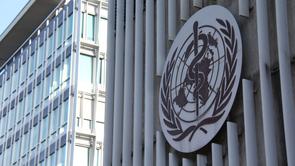 This undated photo shows the logo of the World Health Organization. (PHOTO / XINHUA)
This undated photo shows the logo of the World Health Organization. (PHOTO / XINHUA)
GENEVA - The World Health Organization (WHO) no longer uses the term pandemic, but the COVID-19 coronavirus outbreak remains an international emergency that is likely to spread further, a spokesman said on Monday.
Fears of a coronavirus pandemic grew after sharp rises in new cases reported in Iran, Italy and South Korea, although China relaxed restrictions on movement in several places as its rates of new infections eased.
WHO does not use the old phasing system that some people may be familiar with from 2009. Under the IHR (International Health Regulations), WHO has declared a public health emergency of international concern.
Tarik Jasarevic, WHO spokesman
ALSO READ: S. Korea reports 231 new virus cases, toll in Iran rises to 12
The Geneva-based agency declared the H1N1 swine flu outbreak a pandemic in 2009, which turned out to be mild, leading to some criticism after pharmaceutical companies rushed development of vaccines and drugs.
WHO declared the novel coronavirus that emerged in Wuhan, China, in December a public health emergency of International concern, known as a PHEIC, on Jan 30. The designation, which remains in place, was aimed at helping countries with weaker health systems shore up their defenses, especially in Africa.
Since then the virus has spread, with more than 77,000 known infections in China, including 2,445 deaths, and 1,769 cases and 17 deaths in 28 other countries, the latest WHO figures show. South Korea, Japan and Italy are experiencing large outbreaks.
“There is no official category (for a pandemic),” WHO spokesman Tarik Jasarevic said.
READ MORE: China-WHO expert team reports findings to health minister
Colloquially, pandemic is used to denote the outbreak of a new pathogen that spreads easily person-to-person across the globe, Jasarevic said.
“What we are seeing at the moment are outbreaks and clusters of cases in multiple countries. Some countries have since stopped transmission. They must remain alert for the possibility of reintroduction. There will likely be more cases in more places,” he said.
“Definitions and terminology aside, our advice remains the same, and we continue working with countries to limit the spread of the virus while also preparing for the possibility of wider spread,” he said.
READ MORE: Results from Chinese drug trials for coronavirus 'due in weeks'
Tedros Adhanom Ghebreyesus, WHO director-general, told reporters on Friday: “I would like to assure you we are following this virus 24/7 round the clock ...As we speak our situation is that we are still in a phase where containment is possible with a narrowing window of opportunity.”


